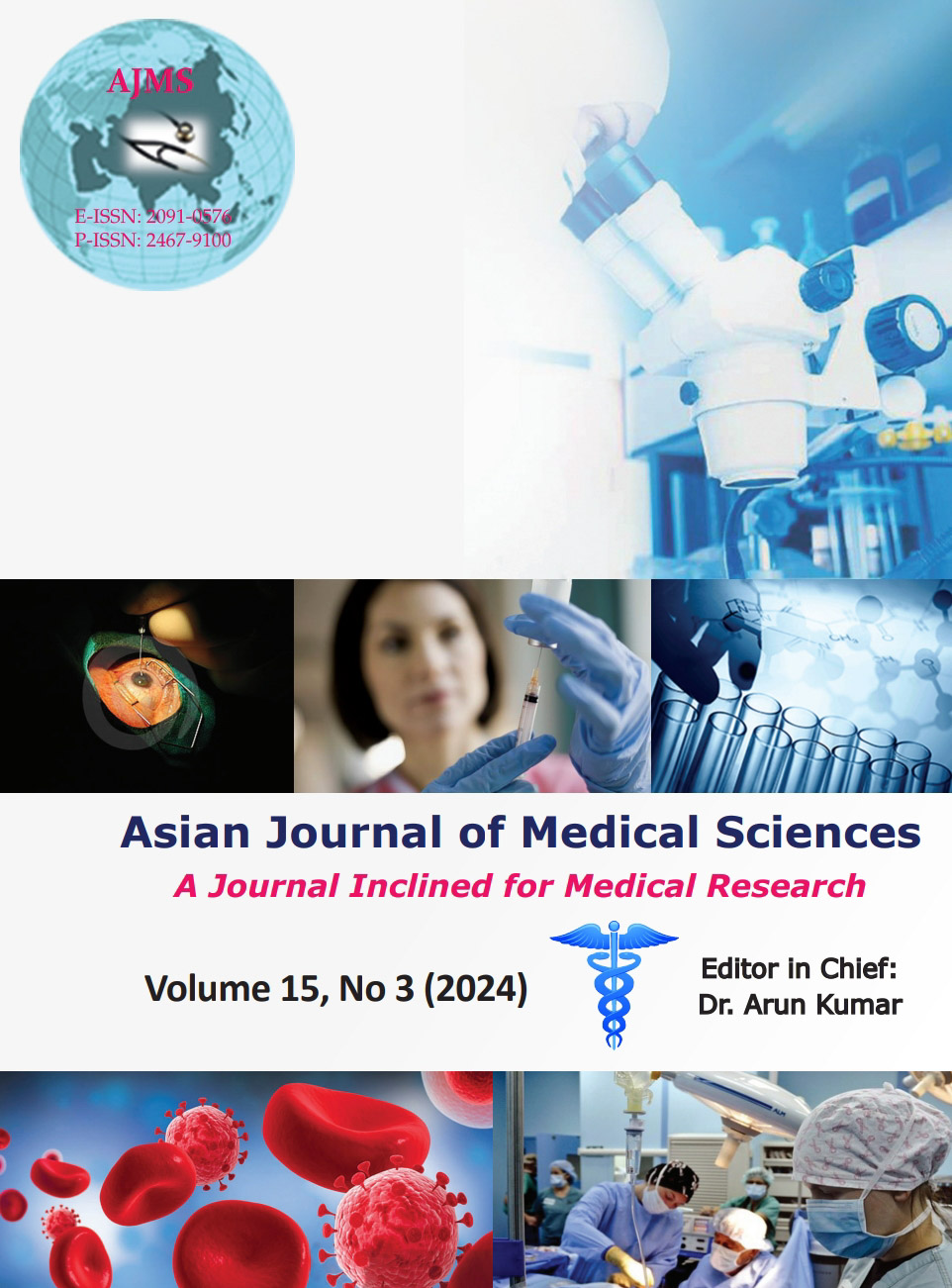Diabetes risk assessment with Indian Diabetes Risk Score: A cross-sectional study among adults in rural Mandya, Karnataka
Keywords:
Diabetes; India Diabetes Risk Score; Rural areaAbstract
Background: Screening for diabetes using the Indian Diabetes Risk Score (IDRS) is an inexpensive yet effective way of early diagnosis.
Aims and Objectives: The present study was conducted to assess the risk of developing diabetes among individuals in rural field practice areas using IDRS.
Materials and Methods: A community-based observational study was conducted among persons aged 20 years and older in the rural field practice area for 2 months. A semi-structured interview schedule, including the “IDRS” questionnaire, was used to obtain the data.
Results: Out of 1100 subjects, around 50% were above 50 years, only 38.6% of the subjects had a waist circumference within the normal limits; 73.8% did moderate exercise; 86% of the subjects had no history of diabetes in their parents. The mean IDRS score of the subjects was 44.12±14.33, ranging from 10 to 90. Nearly 2/3rd (69.6%) of them were at moderate risk, and 21.2% were at high risk for developing diabetes. The IDRS score was significantly higher among those with diabetes and hypertension.
Conclusion: The majority of the subjects in our study had a moderate to high risk of developing diabetes as per the IDRS.
Downloads
Downloads
Published
How to Cite
Issue
Section
License
Copyright (c) 2024 Asian Journal of Medical Sciences

This work is licensed under a Creative Commons Attribution-NonCommercial 4.0 International License.
Authors who publish with this journal agree to the following terms:
- The journal holds copyright and publishes the work under a Creative Commons CC-BY-NC license that permits use, distribution and reprduction in any medium, provided the original work is properly cited and is not used for commercial purposes. The journal should be recognised as the original publisher of this work.
- Authors are able to enter into separate, additional contractual arrangements for the non-exclusive distribution of the journal's published version of the work (e.g., post it to an institutional repository or publish it in a book), with an acknowledgement of its initial publication in this journal.
- Authors are permitted and encouraged to post their work online (e.g., in institutional repositories or on their website) prior to and during the submission process, as it can lead to productive exchanges, as well as earlier and greater citation of published work (See The Effect of Open Access).




